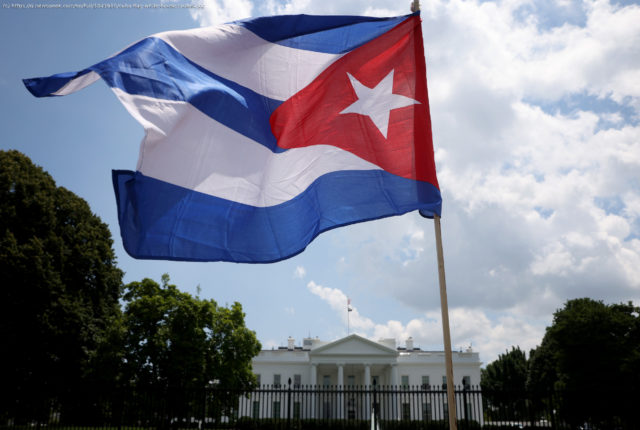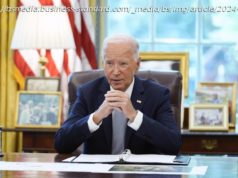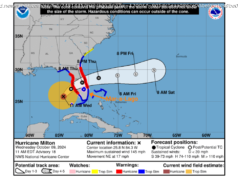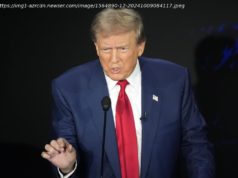«There is no question that Biden’s continuation of the Trump policy and his walking back of his campaign promise to return to the diplomatic approach that Obama took has had a major impact on the
On Cuba, President Joe Biden has maintained his predecessor’s «maximum pressure»- style tactics of sanctions. Along with a blend of other domestic and international factors, they have helped to fuel economic woes that today have manifested in historic antigovernment protests across the Communist-led island nation. This strategy, however, has proven politically inconvenient both abroad and at home. Internationally, the decades-long U.S. embargo of Cuba received a near-unanimous condemnation at the United Nations last month. Domestically, it runs counter to Biden’s past role in promoting ties between Washington and Havana during his role as vice president in the Obama administration. The reversal of the detente with the Cold War-era foe by Obama’s successor, Donald Trump, was credited, at least in part, with enabling him put Florida securely in the Republican column in the 2000 election, where a large Cuban diaspora community has long opposed any U.S. overture to the Cuban Communist Party. But rather than welcoming Biden’s extension of Trump’s hard-line approach, Republicans are pushing him to do more against Cuba, which is suffering not only from disrupted trade ties due to the reintroduction of tight restrictions but also a collapse in the tourism industry brought on by the COVID-19 pandemic. Jared Carter, a Vermont Law School assistant professor who specializes in U.S. policy on Cuba, told Newsweek that «there is no question that Biden’s continuation of the Trump policy and his walking back of his campaign promise to return to the diplomatic approach that Obama took has had a major impact on the Cuban people and the Cuban government.» Carter, who lived, worked and taught in Cuba for more than a decade, said Obama’s moves helped the Cuban economy and decreased the isolation of the island nation. «Under Obama, the influx of U.S. travelers and remittances allowed thousands of Cuban people to start small businesses and build bridges between Cubans and the outside world,» Carter said. «It was people-to-people diplomacy and it fostered relationships and a sense of hope.» Now, however, the situation has devolved drastically. «Covid-19, Trump’s ‘maximum pressure’ approach, and Biden’s decision not to soften U.S. restrictions on trade and travel have been a triple threat that has left Cubans with few economic options,» Carter said. Biden has never explicitly endorsed Trump’s take on Cuba. In fact, he appeared to back Obama’s rapprochement with enthusiasm back in 2014 and 2015. The following year, just weeks before the 2016 election, then-second lady, now-first lady Jill Biden traveled to Cuba on an educational and cultural trip to highlight a milestone shift in relations. During last year’s campaign, Biden argued that the policies Trump later set in place «inflicted harm on the Cuban people and have done nothing to advance democracy and human rights.» These two goals were referenced as recently as late last month when Secretary of State Antony Blinken discussed the ongoing foreign policy review toward Cuba, one of many such reviews conducted by Biden as he considers the best path forward on international issues he’s inherited. «There’s only so much you can do in six months’ time,» Blinken said during the interview with Italy’s RAI TG1 news program. He assured that the administration was «looking very hard» at the topic after the 184-2 U.N. General Assembly vote criticizing the U.S. embargo on Cuba. Reached for comment, the State Department referred Newsweek to Blinken’s comments during Monday’s press briefing. «Over the weekend, tens of thousands of Cubans took to the streets on the island to exercise their right to assemble peacefully and express their views, the protesters called for freedom and human rights, they criticized Cuba’s authoritarian regime for failing to meet people’s most basic needs including food and medicine,» Blinken said. «In many instances,» he added, «peaceful protesters were met with repression and violence.» Blinken offered the State Department’s official position in support of the demonstrations. «The Biden-Harris administration stands by the Cuban people and people around the world who demand their human rights and expect governments to listen to and serve them rather than try to silence them,» he said. «Peaceful protesters are not criminals,» he add. «And we join partners across the hemisphere and around the world in urging the Cuban regime to respect the rights of the Cuban people to determine their own future, something they’ve been denied for too long.» White House Press Secretary Jen Psaki also discussed the matter during a press conference Monday.
Домой
United States
USA — Political On Cuba, Biden Has Adopted Politically Inconvenient Maximum Pressure of Trump






